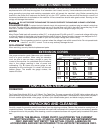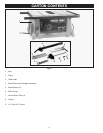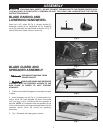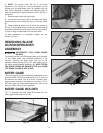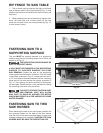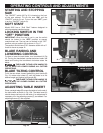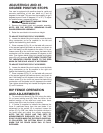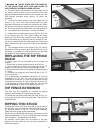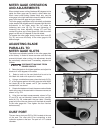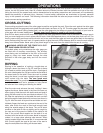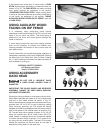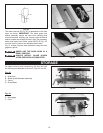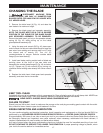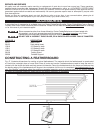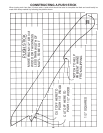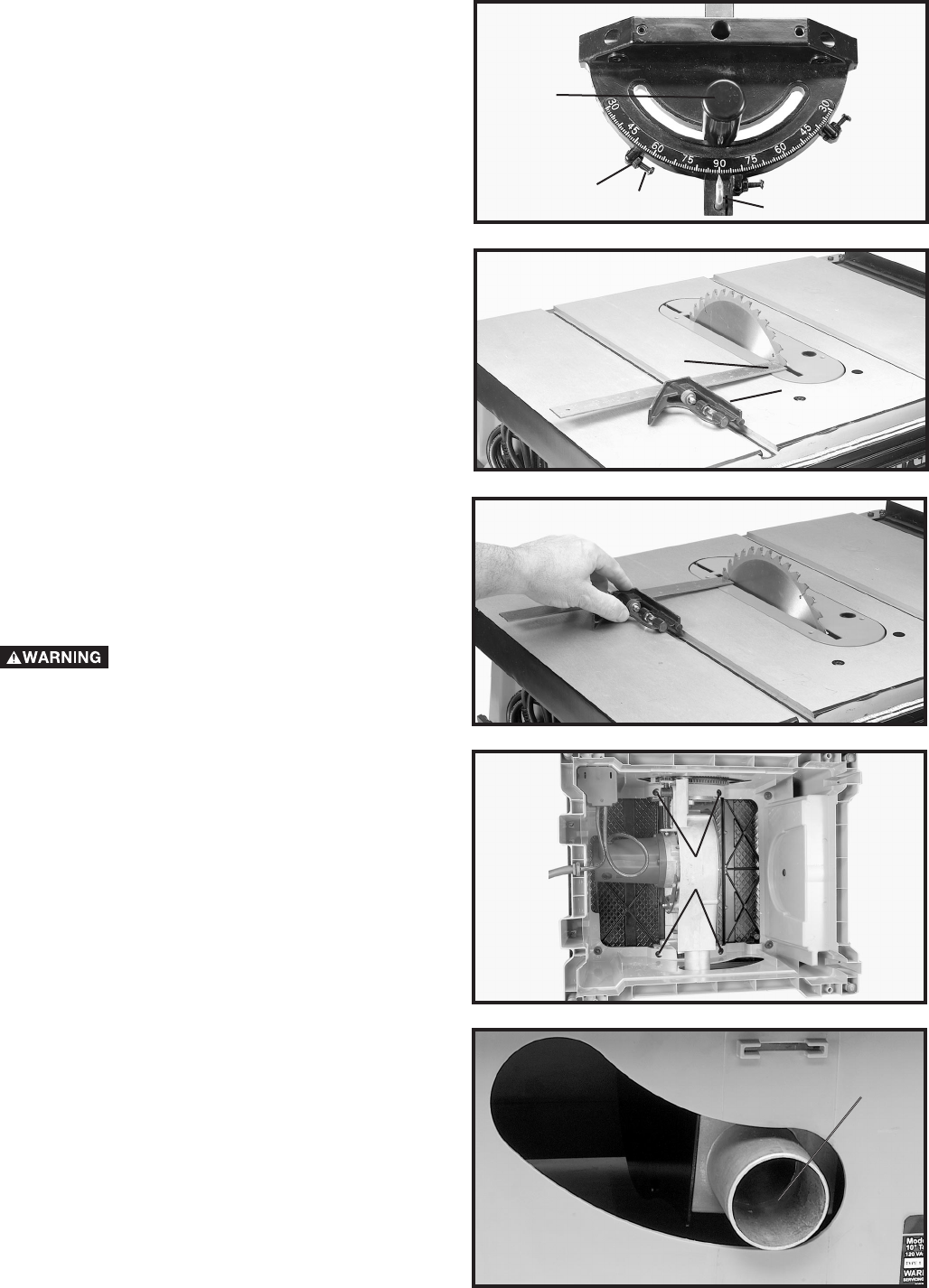
13
MITER GAGE OPERATION
AND ADJUSTMENTS
When straight cross-cutting (blade set 90 degrees to the
table) the miter gage can be used in either table slot.
When bevel cross-cutting (blade tilted) only use the
miter gage in the right table slot where the blade is tilted
away from the miter gage and your hands.
This miter gage is equipped with individually adjustable
index stops at 90 degrees and 45 degrees right and left.
Adjustment to the index stops can be made by
loosening lock nuts (B) Fig. 26, and tightening or
loosening the three adjusting screws (C) until they
contact the other end of stop guard (D) when the miter
gage is at 90 and 45 degrees to the saw blade.
To operate the miter gage, simply loosen lock knob (E)
Fig. 26, and move the body of the miter gage to the
desired angle.
Fig. 26
ADJUSTING BLADE
PARALLEL TO
MITER GAGE SLOTS
The blade was adjusted parallel to the miter gage slots
at the factory. In order to insure accurate cuts and help
prevent kickback when cutting, this adjustment should
be periodically checked and if necessary, adjusted as
follows:
1. DISCONNECT MACHINE FROM
POWER SOURCE.
2. Raise the blade to its highest position and adjust the
blade so it is 90 degrees to the table.
3. Select a tooth on the saw blade that is set to the
left. Mark this tooth with a pencil or marker.
4. Using a combination square, place the body (A) Fig.
27, of the square against the miter gage slot and adjust
the blade (B) of the square until it just touches the
marked tooth, as shown.
5. Rotate the blade and check the same marked blade
tooth at the rear of the saw table in the same manner, as
shown in Fig. 27A.
6. If the front and back measurements, shown in Figs.
27 and 27A, are not identical, loosen the four trunnion
bolts (A) Fig. 28, underneath the saw table. Carefully
grasp and move the saw frame until the blade is parallel
to the miter gage slot. Then tighten the four trunnion
bolts securely.
Fig. 27
Fig. 27A
Fig. 28A
E
C
B
D
A
B
DUST PORT
The saw has a dust port (B) Fig. 28A, located at the rear
of the saw. The dust port is for connecting a dust
collection system to the saw. The port is 2-1/2" outside
diameter.
Fig. 28
A
B



